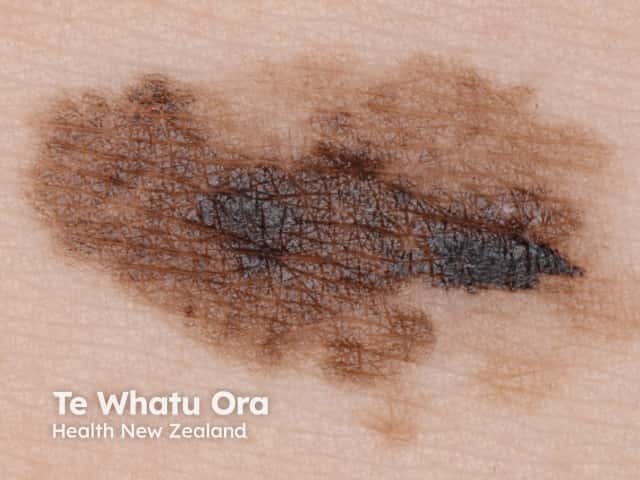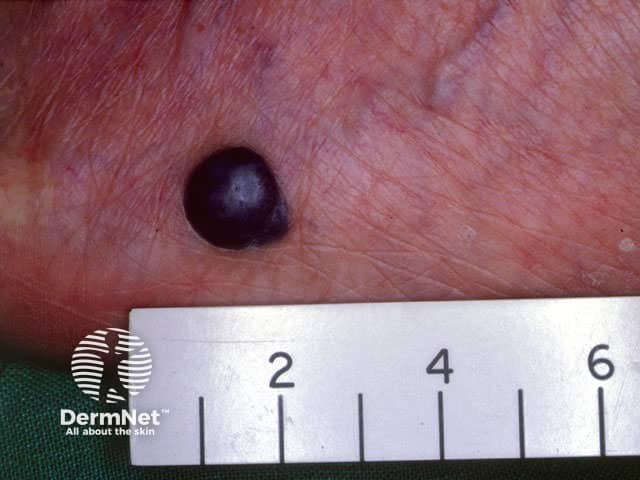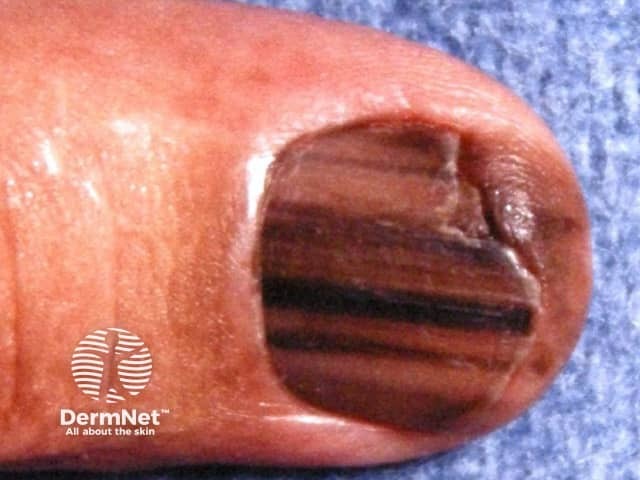Main menu
Common skin conditions

NEWS
Join DermNet PRO
Read more
Quick links
Lesions (cancerous) Diagnosis and testing
Author: Hon A/Prof Amanda Oakley, Dermatologist, Hamilton, New Zealand, 2011.
Introduction
Genes and UVR exposure
Driver mutations
Genetic inheritance of melanoma
Genes and skin colour
Although the main cause of melanoma is the sun, genes are important too. Molecular genetic study of melanoma (genomics) is rapidly increasing our understanding of the disease and how to treat it. It's a very complicated field of research. This page is a short description of why genomics is important.
See also Genetics of melanoma.

Superficial spreading melanoma

Nodular melanoma

Subungual melanoma
Exposure to UV radiation, particularly to UVA (long-wave ultraviolet radiation) causes changes in our melanocyte (pigment cell) genes.
There are likely to be many other triggers to account for the rare forms of melanoma that are not related to sun exposure.
Genetic and chromosomal changes can include:
Genetic changes might cause the melanocyte cells to:
There are numerous different genetic alterations in primary and secondary melanoma.
Common driver or initiating mutations are described below. Understanding driver mutations are leading to new treatments for advanced melanoma.
Some families are said to have familial melanoma, which is due to mutations in genes that are passed down from parent to child and may be associated with clinically atypical naevi and pathologically dysplastic naevi. Melanoma caused by inherited genes is suspected if two or more first-degree relatives (parent, brother, sister or child) are diagnosed with melanoma.
Several specific mutations have been described in different families with melanoma. About 40% have mutations in the CDKN2A gene. Affected members of families with this abnormality tend to have many large moles.
Skin colour partly depends on the activity of the melanocortin 1 receptor (MC1R) gene.
Interferon regulatory factor 4 gene also is a melanoma susceptibility gene associated with fair skin and freckles.